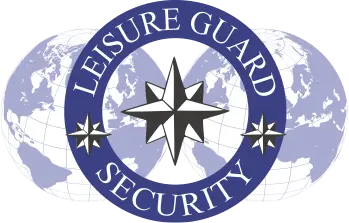What to expect of a career in security
A career in security can be challenging, varied and rewarding. It’s an option that offers a number of important benefits, one of which is the opportunity to work hours that suit you. In that sense, it gives far more flexibility than traditional ‘nine-to-five’ jobs. This might be important for a whole host of personal reasons, such as the ability to fit work around parenting or caring responsibilities, or perhaps working a part-time security role as a way to generate a valuable second income.
Future-Proof
It’s also a career with a secure future. International conflicts and health crises have focused increasing attention on physical security measures and related issues (such as the need to enforce social distancing during the Covid pandemic.) Consequently, while many other jobs might be at risk due to the increasing use of automation and artificial intelligence, there is likely to be steadily rising demand for security personnel and having an ‘on the ground’ presence wherever safety and security are important.
Variety
Some security roles tend to suit individuals who prefer active roles and more variety; something rather more exciting (and much healthier) than sitting at a desk all day. Some security posts will get you out and about in the fresh air – think festivals, sports fixtures and other major public events, or even hotels and construction sites that require regular outdoor patrols. Other roles will be more urban and socially-focused. Door-staff, for example, play an important role that demands good interpersonal and communication skills and it’s one that is very rarely dull.
There are many other security roles, of course, and they will suit people with different preferences and aptitudes. We’ll look at some of the options later on.
Career Change
A career in security might also be a good choice for those who want a change of career or who want to apply useful skills that they have learned elsewhere. For example, it’s a popular choice for former armed services personnel, whose understanding of discipline and focus often make them ideal candidates.
It’s a field in which you’ll need to be licensed by the Security Industry Authority, but it doesn’t demand lots of academic qualifications. The process of securing an SIA licence involves complete a training course and taking a test but it’s relatively straightforward and quick. You can make the decision to change careers and find yourself suitably licensed and working within a matter of just a few short weeks.
A Choice of Roles
Once you are qualified, a wealth of options opens up. Some more common security roles include:
- Door-staff.
The job entails protecting commercial, hospitality and retail premises against risks such as theft, vandalism or antisocial behaviour. (In some settings, it may also include performing age-checks on visitors and barring those who are under-age.) If you intend to work in a licensed premises such as a pub, club or restaurant, you may need additional training and, specifically, a door supervisor licence. This is over and above the requirement for an ordinary SIA licence. - Mobile guards.
This role involves patrolling sites to provide a physical presence that will help to deter intrusion, theft or vandalism. A mobile security guard will look for any suspicious behaviour and check perimeters for anything that might be a potential security risk. Sometimes, a route will be patrolled on foot, sometimes using a security vehicle and sometimes by a mixture of both. - Static guards.
In practice, the roles of static and mobile guards often overlap; a security guard may work part of the day in one role and part in the other. But it is possible to specialise in static work. Its a role that might suit those less able to spend a lot of time ‘up and about’ but who still want to make a difference, keeping people and premises safe. Here, the role might involve monitoring CCTV cameras, manning an entrance gate to a secure compound, or working from the security desk of, say, a hotel lobby. - Event security.
Many event venues hire security staff to control entrances, look for security risks and perform other important tasks such as bag-checks. This is very much a people-focused role, so communication skills, professionalism and politeness are all essential qualities.
These typically account for the majority of security jobs in Britain but this is a large and dynamic sector and there are openings for more specialist roles such as personal protection staff (bodyguarding), store detectives, and staff who might serve a dual function in offices or hotels, providing both a reception service and continuous security monitoring.
What to expect?
There is no one single answer to the question of what a newcomer to the industry should expect because the roles are so varied and because so much can change from day to day. Door-staff working at a popular city-centre pub, for example, can probably expect lots of interaction with customers and late-night revellers; plenty of talk and new challenges every day. The same will almost certainly be true of security staff at outdoor festivals or live music venues. On the other hand, someone who chooses a night-watch role in a quiet office building or a monitoring role at a dedicated CCTV control centre might reasonably expect rather less direct engagement. In all cases, however, vigilance and professionalism will remain extremely important.
Perhaps the only things that all security staff can expect are the more positive aspects of the jobs. That is to say: good variety, the opportunity to progress quickly, the chance to work as part of a close-knit team, and a memorable career in what is undoubtedly a high-growth industry.
